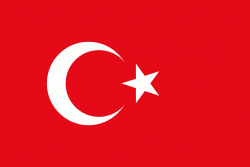Sakarya is a province in Turkey, located on the coast of Black Sea. The Sakarya River creates a webbing of estuaries in the province, which is in the Marmara Region. The adjacent provinces are Kocaeli to the west, Bilecik to the south, Bolu to the southeast and Düzce to the east. The capital of Sakarya is Adapazarı. Its climate is maritime in the north and humid subtropical in the south and changes by the distance to the Black Sea. Sakarya is on the Ankara-Istanbul highway and is also connected by rail. Sakarya is serviced by Istanbul's Sabiha Gökçen International Airport. The current mayor of Sakarya is Ekrem Yüce as of 2019. (AKP). The city of Sakarya, one of the most important cities in Turkey for its rapid growth and development, is also noteworthy for its natural beauties and its cultural richness. It is one of the paradise-like spots of the country with its sea, beaches, lakes, rivers, highlands, thermal springs, traditional Ottoman lifestyle districts such as Taraklı and Geyve and noteworthy historical relics that are inherited from the Byzantine and the Ottoman eras. The Turks conquered the city of Sakarya in the 13th century. There was intensive immigration from the Caucasus and the Balkans in the 18th and the 19th centuries. The last massive immigration was in 1989 from Bulgaria. The city has developed industry from being a transportation crossroads and still has inward domestic migration. Sakarya is notable in the Marmara Region. The city of Sakarya is surrounded with the city of Düzce in the east, Bolu in the south-east, Bilecik in the south, Kocaeli in the west and the Black Sea in the north. The city of Sakarya has 16 districts; Adapazarı, Akyazı, Arifiye, Erenler, Ferizli, Geyve, Hendek, Karapürçek, Karasu, Kaynarca, Kocaali, Pamukova, Sapanca, Serdivan, Söğütlü and Taraklı.
Sakarya is located at the intersection of all the important roads and railways. The D-100 (E-5) highway, which has an important role on domestic and international transportation, passes through the city astward all along with TEM highway. Aling with the D-25 highway toward Bilecik, it is the city's main transportation axis. The Kınalı-İstanbul-Sakarya-Ankara highway, from Edirne, has an important international role. In Kınalı, one branch of the highway is connected to Greece, and the other branch is connected to Bulgaria. Here are the distances to some of the main cities from Sakarya: 797 km to Adana, 583 km to Antalya, 102 km to Bilecik, 158 km to Bursa, 188 km to Eskişehir, 148 km to İstanbul, 933 km to Trabzon, 306 km to Ankara, 114 km to Bolu, 486 km to İzmir, 79 km to Düzce, 708 km to Muğla, 179 km to Zonguldak and 37 km to Kocaeli. There are seven railway stations throughout a 65 km railway inside the city limits. The railway connects Istanbul to Ankara and other Anatolian cities passes and through Sakarya. The distance from Sakarya to Istanbul by railway is 141 km and 436 km to Ankara. The nearest airports to Adapazarı are the Sabiha Gökçen Airport, in Kurtköy – Istanbul, and the Istanbul Atatürk Airport, in Yeşilköy.
















